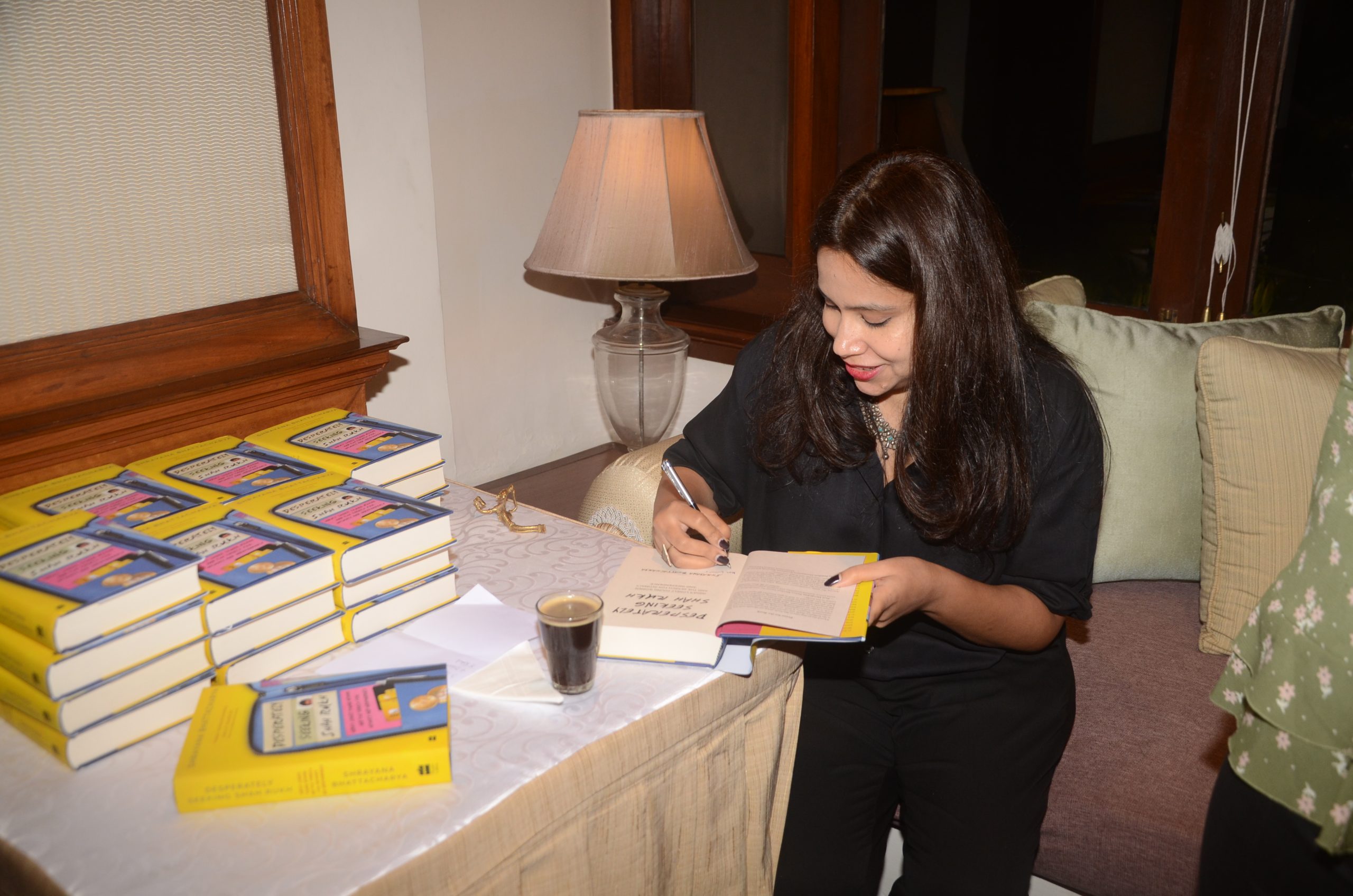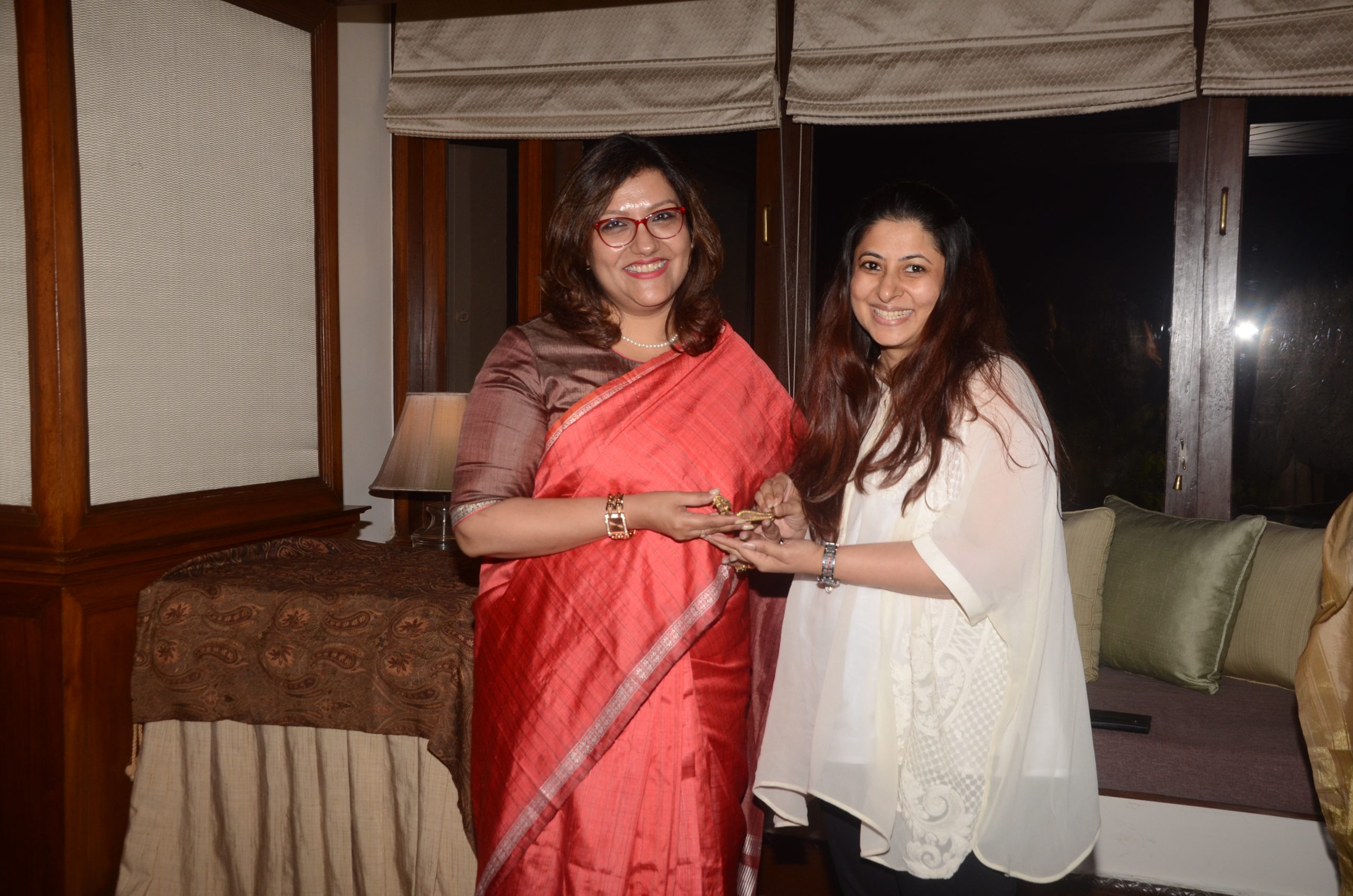The word ‘economics’ inspires in our minds the names of revered economists like Amartya Sen, Manmohan Singh, Raghuram Rajan and, more recently, Abhijit Banerjee. What it also invokes are myriad images of scholarly books and articles dealing with concepts which lie beyond the layman’s ambit of understanding. The scope of the subject condenses the everyday stories of the lives of the people into statistics, which only a select group of people can comprehend. However, Shrayana Bhattacharya, in her book, Desperately Seeking Shah Rukh: India’s Lonely Young Women and the Search for Intimacy and Independence, moves beyond the academic jargon of economics and tells the stories of India’s working women through their understanding of the Bollywood star, Shah Rukh Khan, in a way that they become at once riveting and impactful. Prabha Khaitan Foundation organised another session of An Author’s Afternoon with Shrayana Bhattacharya at the Taj Bengal.
An economist at the World Bank’s social protection and labour unit for South Asia, Bhattacharya has based her book on how women experience the Indian economy, analysed through their love and adoration for Khan and his films. In conversation with the author was Mohua Chatterjee. Bhattacharya spoke about the resilience of India’s working women and their aspirations for achieving economic freedom. The session was introduced by Shefali Rawat Agarwal, Ehsaas Woman of Kolkata.
How did writing come to an economist? Bhattacharya admitted that she had always been a “hobby writer”, and she loved the “act of writing”. “I never thought that I was writing a book, I thought that I was writing a series of journal entry notes,” she explained. On the subject of economic inaccessibility, she pointed out, “The economy is not about men wearing suits and discussing numbers and the investment climate. The economy is all about all of us gathered here. It is a set of everyday, intimate interactions.”
It was only when Bhattacharya was sent to the slums of Ahmedabad to conduct a survey on the garment and agarbatti workers that she found out that women were tired of being asked the same questions and facing the subsequent inaction. These women, she realised, were looking for a livelier conversation that allowed them to talk about themselves and their daily lives. She soon found out that it was their love for Shah Rukh Khan and his films that they wanted to talk about, and that which ran as a common thread between them.
“Khan became a metaphor – nobody was talking about him,” said Bhattacharya. “The women were talking about how they struggled to find money to watch him in a movie. Talking about their favourite film star became an unusual way to talk about women’s access to economic independence. They are looking for men who are reciprocal and supportive; they are looking for a family and a society that values their work. The women use his films and interviews to express these things.” Thus, in Bhattacharya’s book, Khan does not remain an icon; he becomes a prism through which the author explores the lives of women who are united in their aspirations and adoration for the actor.
“There’d be no GDP without women,” remarked Bhattacharya, while talking about how women’s labour is grossly undervalued and underpaid in the country. “Who’s raising our workforce? Who’s feeding them and taking care of them? In India, 64% of women’s work is unpaid.” She added that men contribute significantly to the problem. “When we start talking about women’s issues, men become reluctant,” she said. “They are also reluctant to help with household work, resulting in a world where women are stuck in low-paid or unpaid jobs at home. Women not only pay higher taxes for living alone, but also pay an emotional tax because they are made to feel isolated and judged for desiring a life outside the home.”
Highlighting the difference between the salaried and propertied classes of the country, Bhattacharya pointed out that the difference between the two classes is so high that those who do not own property suffer from the anxiety of making it in life. “All the women in the book are trying to own a home to have that sense of stability, and none of them actually come from a property-owning background,” she said. “SRK struggled with rentals and built his house, Mannat, which is why all these women stand outside Mannat and stare at it.” Thus, Shah Rukh Khan’s success serves as an inspiration to all the women desperately wanting to make it in life. Bhattacharya’s concluding comment said it all: “They say never meet your heroes, but if it’s Shah Rukh Khan, you definitely should!” The session came to a close with Anindita Chatterjee, Executive Trustee of the Foundation, delivering the vote of thanks, and Bhattacharya and Chatterjee being felicitated by Pooja Poddar.











